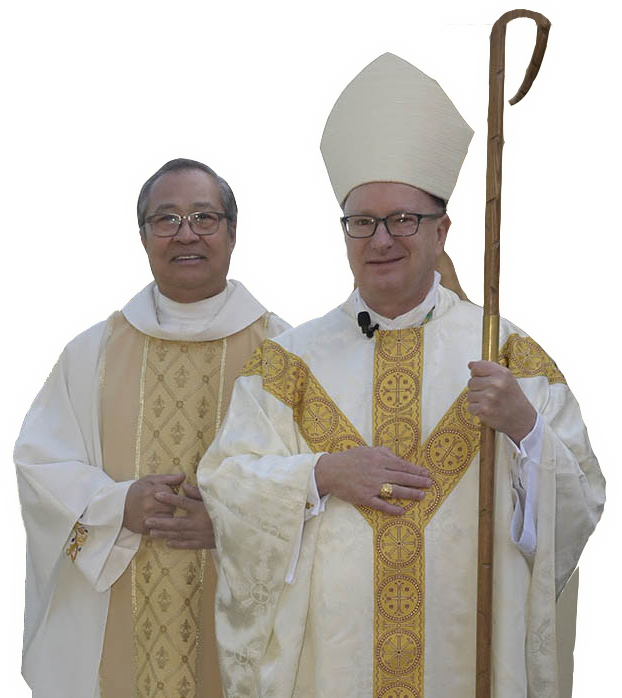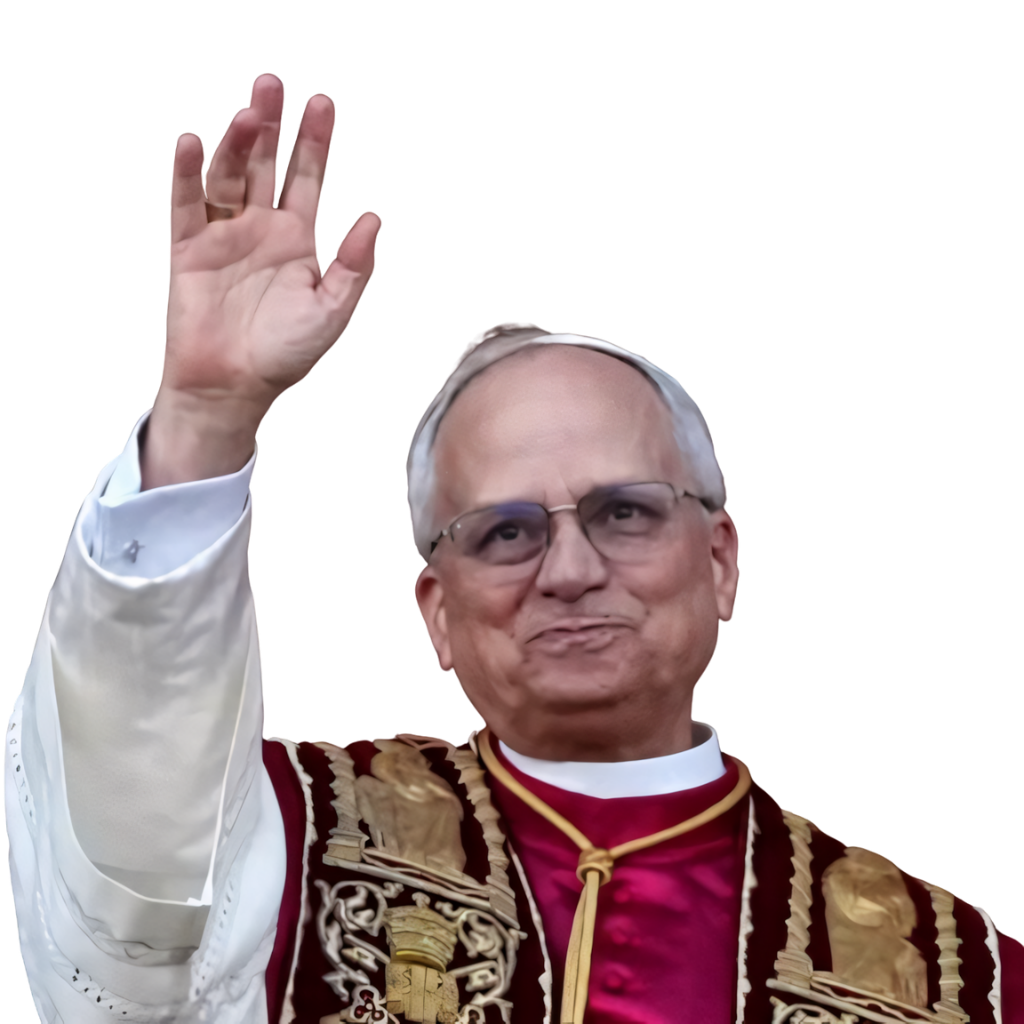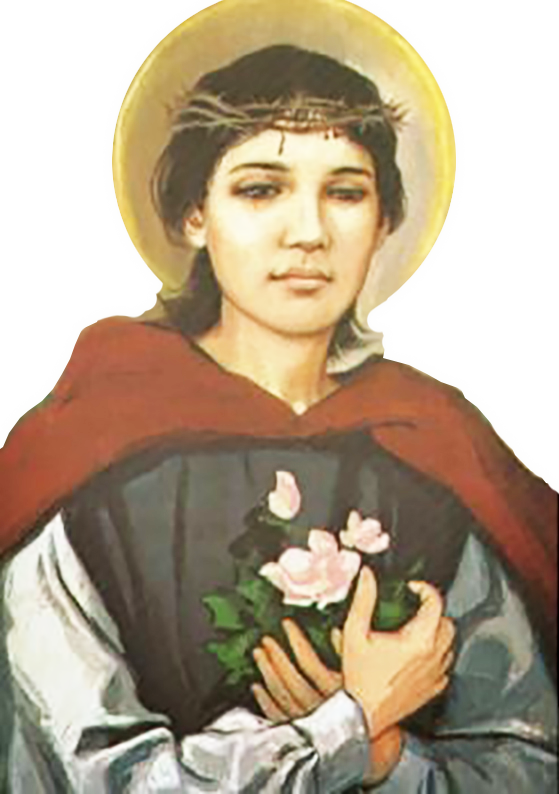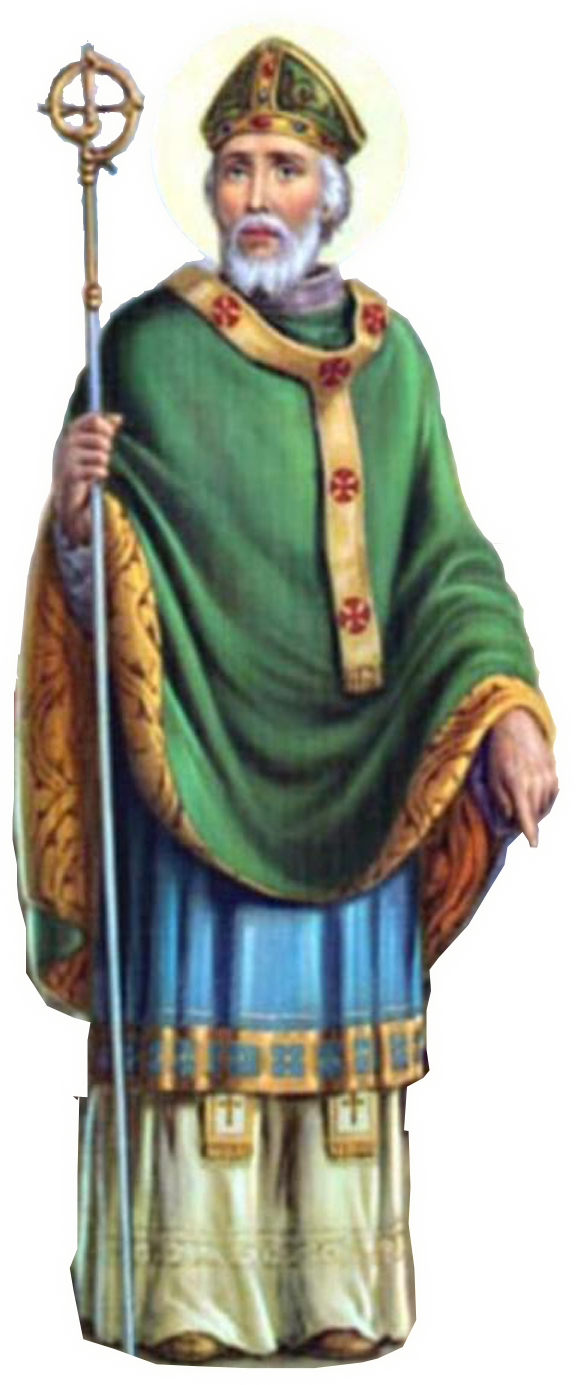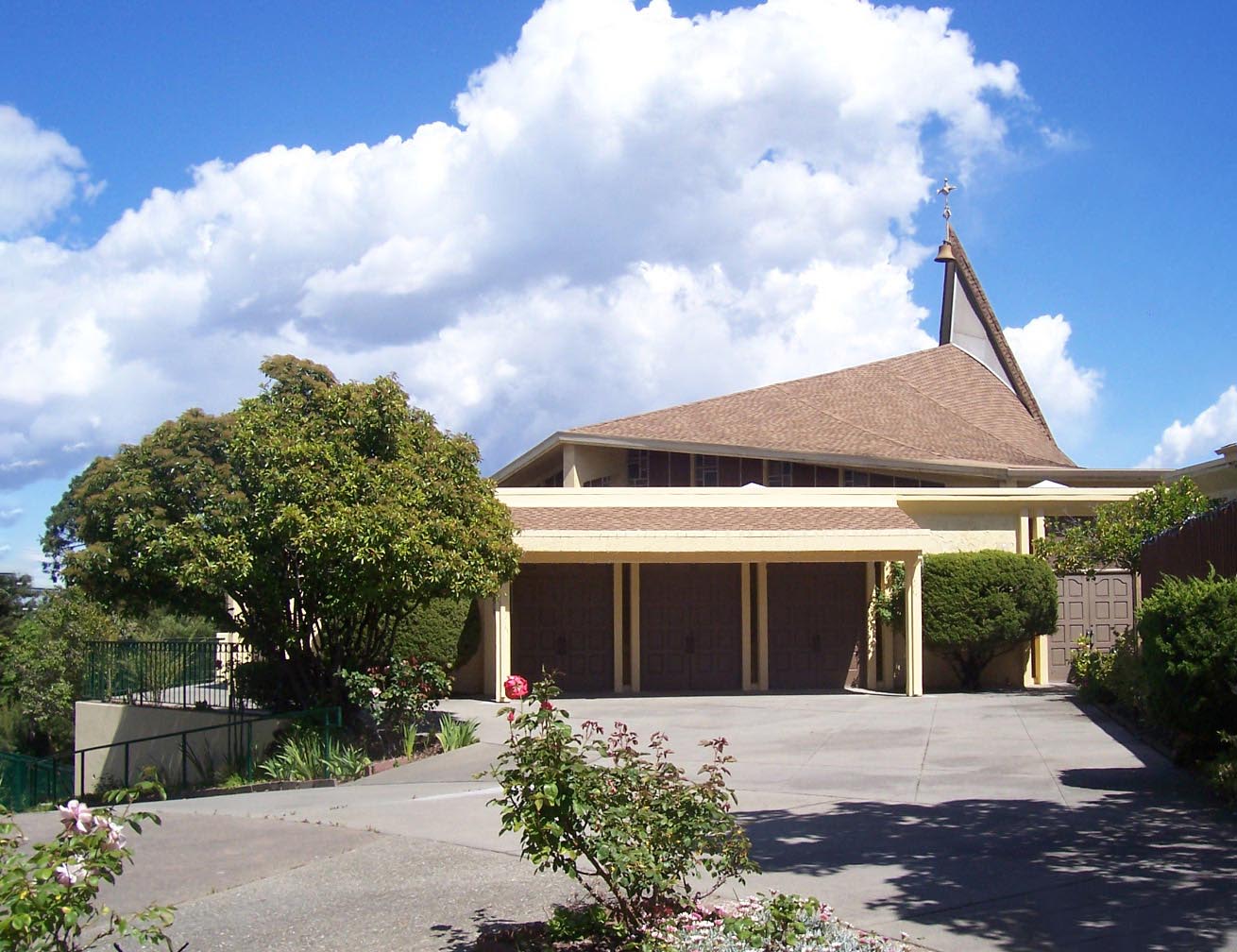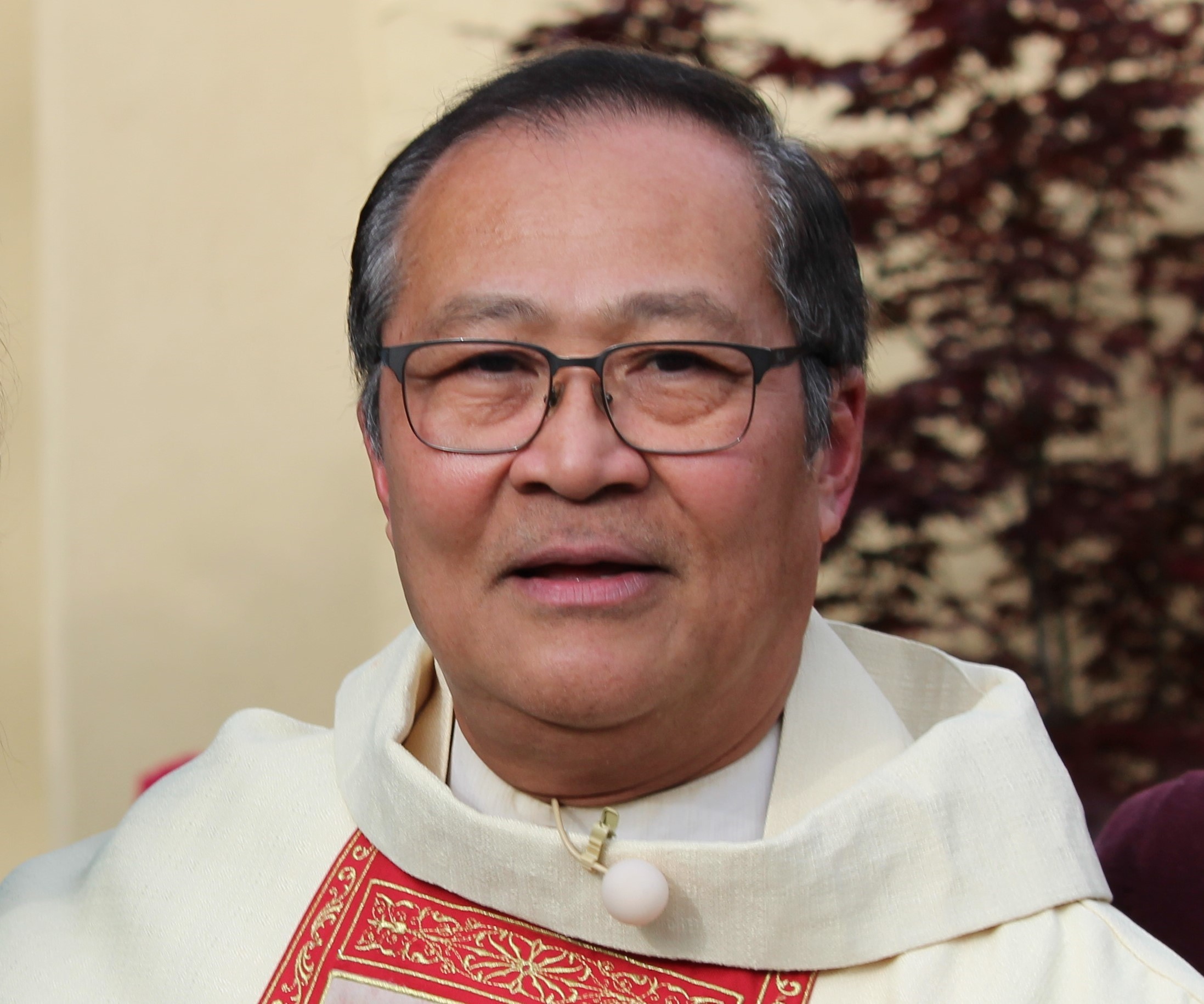
Administrator
The Ascension of the Lord
(6/01/2025) Gospel Reading: Luke 24:46-53
“May They Become Perfectly One”
Go and teach all nations, says the Lord;
I am with you always, until the end of the world.
From the desk of Fr. Leo
Years ago, France and indeed the rest of the world, celebrated the bicentenary of the French Revolution. That happening, just over two-hundred years ago, was probably one of the greatest milestones in history. It is probably true to say that it gave birth to the modern democratic world. But the French Revolution included many events which even the French would like to forget and certainly contributed nothing to the advance of civilization, such as the execution of the king or the Reign of Terror. When you look at the two neighboring countries, Britain and France, with approximately the same population, which were in fact traditionally what the French call “frieres-enemies”, both are equally democratic today, even though England retains her monarchy and some aristocratic institutions, such as the House of Lords. Although England was bitterly opposed to the French Revolution, it has, like everywhere else, been transformed by it.
The precise event itself which opened a new chapter in our history took place between the 20-26 August of 1789. It was in fact “The Declaration of the Rights of Man and of the Citizen” to give it its full title. It was the charter of a new age. It is a short document, with not many articles, which can be summed up in that marvelous slogan which became the catch-cry of the Revolution, “Liberty, Equality, and Fraternity.” Had the revolution produced nothing else but that slogan, it was guaranteed to win the minds and hearts of future generations. Liberty was defined as the right of the individual to act freely, provided he or she did not harm another.
Since then, what we now call civil rights, has had a long and difficult birth. The African Americans only achieved theirs in the sixties, under the leadership of Martin Luther King, who paid for them with his life. Those of their color in South Africa had to wait another thirty years before apartheid was dismantled and Nelson Mandela had paid a ransom of twenty-eight years in prison. There were other martyrs, too numerous to mention in the Gulag Archipelago, who did not survive to see the Berlin Wall collapse and the establishment of civil liberties in the Soviet Bloc.
There are many places still in the world where the message of the French Revolution has not yet penetrated. But at least now, civil rights are firmly in the agenda. If they too wish to join the club, and there are now compelling economic reasons for doing so, they must first improve their record in human rights.
In this weekend's Gospel, Christ makes his farewell. It takes the form of a prayer for his disciples:
Holy Father,
I pray not only for these, but for those also who through their words will believe in me.
May they all be one. Father, may they be one in us as you are in me and I am in you,
so that the world may believe it was you who sent me.
*** + ***
Meditation: When you pray what do you ask for - God's help, blessing, guidance, and wisdom? One of the greatest privileges and responsibilities we have been given by God is to pray not only for ourselves, but for others as well. The Lord Jesus lived a life full of prayer, blessing, and gratitude to his Father in heaven. He prayed for his disciples, especially when they were in great need or danger. Mark tells us in his Gospel account (see chapter 6:46-51) that when Jesus was praying alone on the mountain he saw that his disciples were in great distress due to a life-threatening storm that was beating against their boat. Jesus immediately came to their rescue - walking on the waves of the rough waters before he calmed their fears and calmed the raging waters as well! Luke records in his Gospel account the words of Jesus to Simon Peter shortly before Jesus' arrest and Peter's denial of the Lord three times. "Simon, Simon, behold, Satan demanded to have you, that he might sift you like wheat, but I have prayed for you, Simon, that your faith may not fail. And when you have turned back, strengthen your brothers" (Luke 22:32). Jesus' prayers were personal, direct, and focused on the welfare and well-being of others - especially that they might find peace and unity with God and with one another.
Jesus prays for all Christians to be united as one
The longest recorded prayer of Jesus is found in the Gospel of John, the "high priestly" prayer which Jesus prayed aloud at his last supper meal with his disciples (John 17). This prayer most clearly reveals the heart and mind of Jesus - who and what he loved most - love for his Father in heaven and love for all who believe in him. His prayer focuses on the love and unity he desires for all who would believe in him and follow him, not only in the present, but in the future as well.
Jesus' prayer concludes with a petition for the unity among all Christians who profess that Jesus Christ is Lord. Jesus prays for all men and women who will come after him and follow him as his disciples (John 17:20). In a special way Jesus prays here for each one of us that as members of his body the church we would be one as he and his Father are one. The unity of Jesus, the only begotten Son of God, with the eternal Father is a unity of mutual love, service, and honor, and a oneness of mind, heart, and spirit. The Lord Jesus calls each and every one of his followers into this unity of mutual love, respect, service, honor, and friendship with all who belong to Christ.
To make him known and loved by all
Jesus' prayer on the eve of his sacrifice shows the great love and trust he had for his beloved disciples. He knew they would abandon him in his hour of trial, yet he entrusted to them the great task of spreading his name throughout the world and to the end of the ages. The Lord Jesus entrusts us today with the same mission - to make him known and loved by all. Jesus died and rose again that all might be one as he and the Father are one. Do you love all who belong to Christ and do you recognize and accept all baptized Christians as your brothers and sisters in Christ? The Lord Jesus, through the power of the Holy Spirit, draws each one of us into the unity which he and the Father have together and into the unity he desires for all who belong to him - we are all brothers and sisters in Christ and sons and daughters of our beloved Father in heaven.
The Lord intercedes for us right now
The Lord Jesus Christ included each one of us in his high priestly prayer at the last supper meal with his disciples on the eve of his sacrifice on the cross (John 17:20). And today the Lord Jesus continues his high priestly office as our intercessor before the throne of God in heaven. Paul the Apostle tells us that it is "Christ Jesus, who died, yes, who was raised from the dead, who is at the right hand of God, who indeed intercedes for us" (Romans 8:34; see also Hebrews 7: 25). Do you join in Jesus' high priestly prayer that all who profess Jesus as Lord may grow in love and unity together as brothers and sisters who have been redeemed through the precious blood that was shed for us on the cross?
Heavenly Father, have mercy on all your people who have been redeemed by the precious blood of your Son who offered up his life for us on the cross. Pardon our sins and heal our divisions that we may grow in love, unity, and holiness together as your sons and daughters. May all Christian people throughout the world attain the unity for which Jesus prayed on the eve of his sacrifice. Renew in us the power of the Holy Spirit that we may be a sign of that unity and a means of its growth. Increase in us a fervent love, respect, and care for all of our brothers and sisters who believe in Jesus Christ.
read more at: http://dailyscripture.servantsoftheword.org
*** + ***
Daily Scripture Readings and Meditations
*******
Latest Parish Pastoral Council Meeting Minutes
Latest Finance Committee Meeting Minutes
*******
Please see our Sunday bulletin for more information.
*******
Please support our local advertisers.
*******
Online Donations
The Diocese of Oakland is trying to help those parishes and parishioner where online giving is not in place. To do this, they have set up a way for people to donate online through the Diocese to their own parish.
ALL DONATIONS THROUGH THIS LINK GO DIRECTLY TO THE PARISH THAT IS SELECTED.
Go to the Parish Support page of the Dioceses of Oakland home page:
https://www.oakdiocese.org/parish-support
Choose or enter the amount of your donation.
Select ‘St. Rose of Lima, Crockett’ or ‘St. Patrick Mission, Port Costa’ in the Parish Name box.
Enter your billing address, email address and card information.
Once the submit button is clicked, a short reply will show up confirming the transaction was successful. A few minutes later, a message will be sent to the email account entered with a summary of the gift, including the parish it will be directed towards, and a simple thank you. The Diocese will process the gifts, which entails charging the credit or debit card.
NOTE: Your card or debit card may not be charged immediately. The gift will be processed by an OMA staff member.
*******
Don’t take a vacation from God!
If travelling to unfamiliar places, include God in your itineraries. Information on local churches and mass times can be found at
or by calling 1-800-MASS-TIMES within the USA.
*******
Listen to America’s Talk Radio Network for Catholics.
*******
Some interesting websites
US Conference of Catholic Bishops
*******
PETITIONS
*******
Prayers for the sick
Pray for our sick brothers and sisters specially:
Arthur Balagot
Sister Yolnda Leos
*******
Prayers for the deceased
In your prayers, please remember in a special way, the repose of the souls of our departed sisters and brothers.
Christina Quiapo
Marleana Airoldi
******

